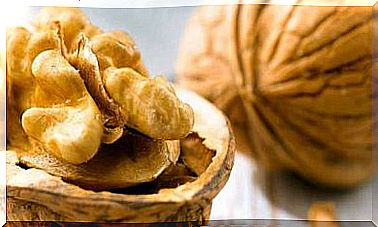Does Stress Cause Cancer?
Chronic stress does. It is the ideal breeding ground for the body to create an inflammatory and immunosuppressive response.

As a tumor immunologist, I have found that cancer arises from a chronic inflammatory process. Depression and chronic stress (and I repeat chronic), without realizing it, put us at risk of creating a pro-inflammatory environment that can lead to cancer.
The relationship between cancer and chronic stress
The association between stress and cancer is very topical. To be able to argue about it, you have to be clear about three basic assumptions:
- Everything in our life is directly or indirectly regulated by the brain.
- The body’s ability to repair itself, to heal itself, is robust and redundant, that is, it has more than one self-healing mechanism.
- Stress, like any factor capable of causing harm to an individual, must have a chronic impact in order to saturate the repair mechanisms.
Hence we start in our discussion of chronic stress. Let us also clarify from the beginning that a series of difficulties mean that the experimental results, which have been obtained over the years to confirm this association in humans, have not been as conclusive as their researchers would have liked. Due to various reasons:
- The large number of people it would take to confirm them.
- The follow-up period is extremely long for evaluable events to occur.
- The amount of pollutant parameters is mu and elevated : living habits, sedentary lifestyle, diet, exercise, smoking, alcohol consumption …
All of this has made the most important studies to determine this association come from epidemiological studies and meta-analyzes.
We could say that the majority of studies would agree to conclude that the relationship between stress and cancer exists.
A number of studies with relatives of patients in intensive care in American hospitals have shown that, after great continuous stress, this person’s T lymphocytes – which are the ones that attack cancer in our body – do not work. His defenses have been lowered by the effect of severe and ongoing stress.
How does an emotional trauma influence?
One of the most common situations that oncologists encounter in daily practice is that of the person who is diagnosed with cancer and who claims to have suffered a great emotional trauma in the previous two or three years : the loss of a loved one, a divorce, the loss of a job, or a serious and unresolved family conflict, among other possibilities of this type.
In such cases, the common knowledge associates the trauma with the appearance of cancer.
This association exists and we have all had this experience in a friend or family member, but it would not be correct to say that this emotional trauma is the origin of cancer.
The cancerous process has a long journey, from when a person inhales their first cigarette until the appearance of lung cancer, 20-25 years can pass. Workers with asbestos developed pleural cancer called mesothelioma within 30 or more years of first contact.
How do defective cells survive?
What we can say is that we all make cell mutations every day. Our body produces trillions of cells a day and it is logical that from this immense factory that is our body some of the cells come out defective, mutated or aberrant.
The vast majority of these defective or mutated cells are not viable and the body itself is responsible for eliminating them.
But in a few, their own mutation gives them an advantage over other normal cells: it gives them the property of “immortality” and, at this very moment, we are presented with a possible cancer focus if it survives its environment.
It is pure Darwinism, those defective cells that adapt to the environment will survive. Intense and continuous stress would favor such survival
Its inflammatory capacity will act to promote the growth of this tumor focus, which in other circumstances would be destined to live in lethargy or be eliminated by the body itself. Therefore, it would be a matter of time, 2 or 3 years, for the cancer to appear and be diagnosed.
Stress can “activate” tumors
States of fear, anxiety and depression activate the stress pathways of our brain and originate measurable responses in our body. These pathways can induce the production of neurotransmitters and hormones that can alter the tumor environment.
In states of stress, it is known that the levels of catecholamines, adrenaline and norepinephrine are elevated and that these substances in the blood can activate receptors on cancer cells and regulate a wide variety of tumor functions such as growth, migration and invasion. of this.
What do the studies confirm?
Initially, research into the relationship between stress and cancer focused on the immunosuppressive effects of continuous stress states, which led to the acceptance of stress as a factor that would alter immune surveillance and, therefore, favor the appearance of cancer.
Other studies have shown the effects of chronic stress by inducing the release of oxygen free radicals, altering the cell membrane and affecting the repair of DNA damage.
In the last 10 years, research has focused on how stress influences tumor blood vessel formation (angiogenesis), tumor invasion, effects on the cellular environment of the tumor, and inflammation.
It has been proven that during periods of stress our brain produces pro-inflammatory substances that act as a breeding ground for the tumor.
Inflammation favors cancerous growth. And stress induces an inflammatory and immunosuppressive response by the body.
Techniques and foods that help
We could therefore say that chronic stress would be a factor that favors tumor growth, but not the only one for the reasons that we adduced at the beginning: habits of the person, nutrition, smoking or genetics of the individual, among others.
That is why incorporating healthy habits into our lives that seek to reduce stress and, with it, reduce inflammatory processes in our body would be consistent with what we already know from a scientific perspective.
Thus, in the best-known cancer centers in the United States , patients are recommended to practice anti-stress techniques such as yoga, the so-called mindfulness, tai chi or meditation.
In addition to recommending that they consume antioxidant foods and anti-inflammatory nutrients, such as:
- Fruit: berries, cherries.
- Vegetable: green leafy vegetables, bell pepper, beet.
- Whole grains.
- Legumes, such as soybeans.
- Spices: ginger, turmeric.
- Nuts: almond, walnut.
We all produce cell mutations every day that our body is responsible for eliminating. However, continued stress favors their growth.









